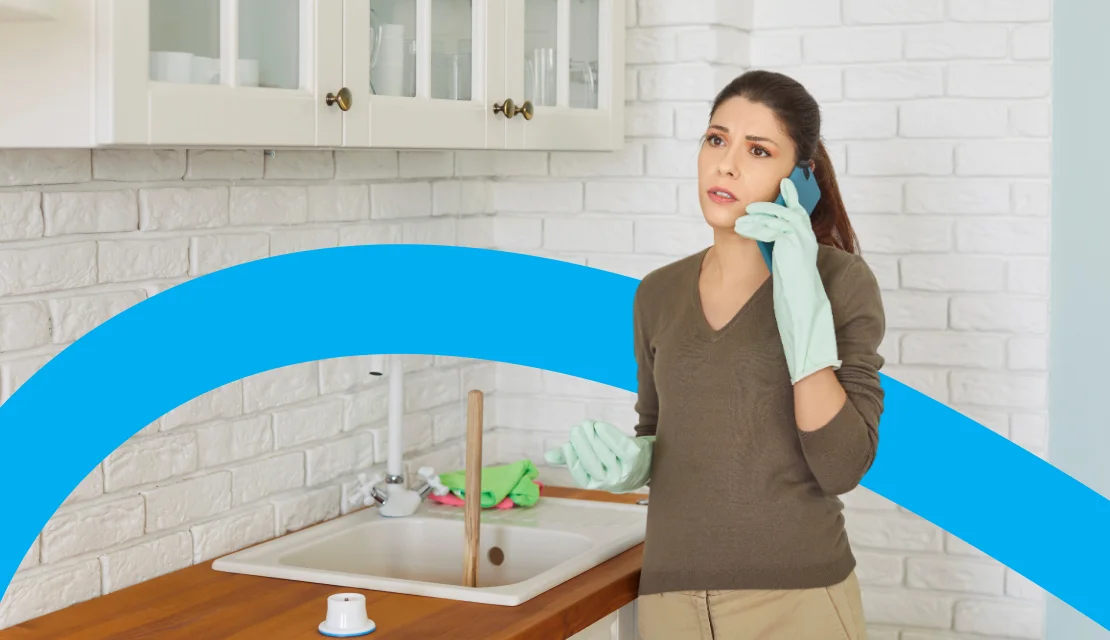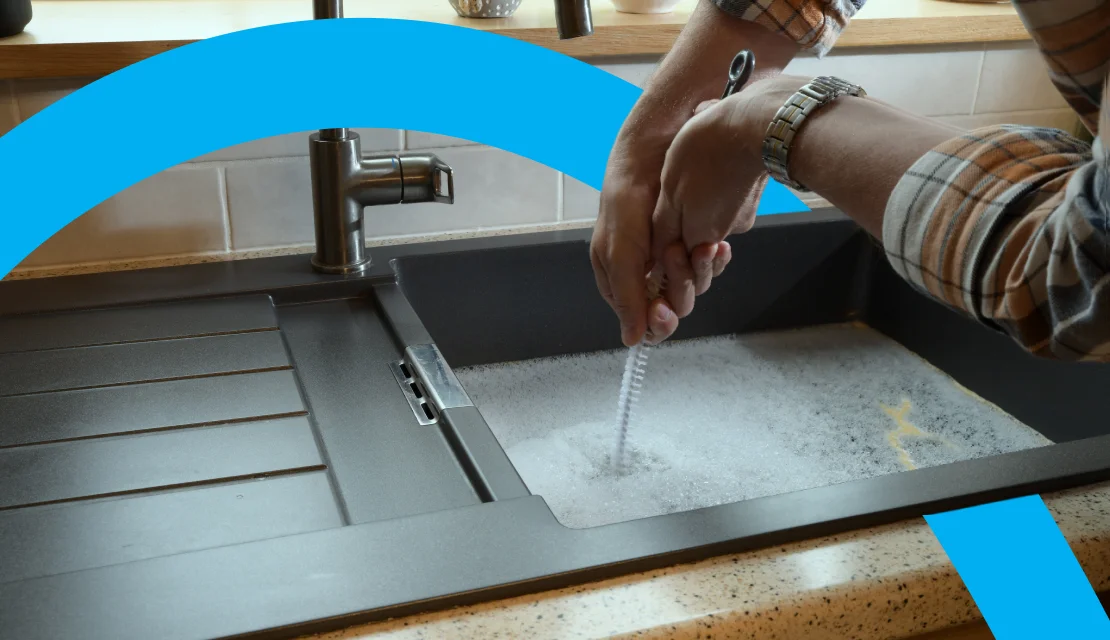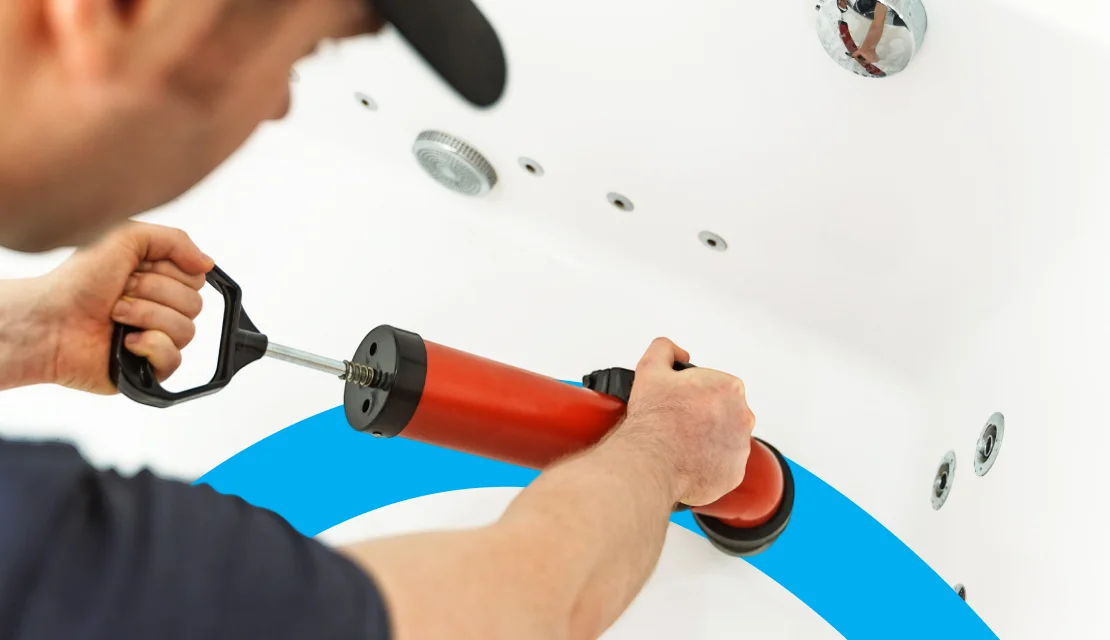
A plumbing stoppage is one of those problems that every homeowner dreads. One moment, your pipes seem fine, but then you are stuck with a sink that refuses to drain or a shower that is pooling with water. These clogs can be minor annoyances or the beginning of a much larger mess if ignored.
Most homeowners wait until their pipes are completely blocked before taking action. And, it’s a big mistake! Those early warning signs are your chance to handle the problem before it spirals out of control.
But what really causes them? And how do you know when it’s a minor issue you can tackle or a warning sign that requires professional help? In this blog, we’ll break down the reasons behind plumbing blockage and practical ways to solve this issue.
Plumbing stoppage is the term used when pipes get blocked and water can’t move the way it should. It may be a small issue, like soap scum building up in the shower, or a major one, such as tree roots pushing into the sewer line.
Such blockages can happen in any part of the system, whether it is a single sink drain or the main sewer line. Either way, stoppages disrupt daily routines and can cause messy situations if they aren’t addressed quickly.
It’s not always obvious when a plumbing blockage is forming. But your home will usually drop a few hints before things get messy. Here are five clear signs that it is time to pay attention.
If sinks or tubs take forever to empty, you may have buildup inside the pipes. Even a partial clog can slow water movement, and ignoring it could allow the clog to spread further.
Listen for unusual sounds from your drains. Odd noises like gurgling or bubbling from your plumbing fixtures usually signal that air is trapped due to an obstruction. This means that water is struggling to move through your pipes.
Foul odors emerging from drains indicate stagnant conditions inside your pipes. These nasty smells develop when partial blockages prevent proper drainage, allowing waste and water to sit and decompose.
Smelly drains often point to trapped waste or stagnant water caused by a clog. If you notice a bad smell from your drains, it is worth investigating.
When water starts coming up in sinks, tubs, or showers, it signals a major clog. This often means the main sewer line is blocked.

If a flush causes the toilet bowl to rise instead of empty, the line may be obstructed. You are likely dealing with more than a simple clog, which can quickly lead to flooding if left untreated.
Every homeowner deals with clogs at some point, but not all are simple to clear. The reasons aren’t always obvious, but most stoppage issues stem from everyday habits or hidden damage underground.
Learning the most common causes gives you a better chance to stop issues before they turn into bigger repairs.
Hair Clogs in Drains
Hair strands wrap around themselves inside the drain. Add soap scum, and the mess becomes a sticky ball that slows water flow. You’ll notice showers and bathtubs draining more slowly than normal. Using a strainer to catch hair before it enters the pipe is one of the easiest fixes.
Kitchen Grease Build-Up
Cooking oils and grease may appear as liquid when hot, but they quickly solidify in the drain. Once hardened, they hold on to food scraps and detergent residue.
The more grease that collects, the tighter the clog becomes. Avoid pouring oils directly into the sink, and clean pans before washing to keep pipes clearer.
Foreign Objects Flushed
Flushing wipes, cotton pads, or toys may not seem like much at first. But these items don’t break apart in water, and instead, they lodge deep inside pipes.
Blockages from foreign objects often need professional tools to clear. Teaching family members what not to flush is the simplest prevention method.
Roots Invading Pipes
Roots are strong enough to push into small cracks in underground pipes. Once inside, they spread and block water entirely.
This usually leads to recurring clogs and sometimes pipe collapse. Root problems often need specialized equipment, such as hydro-jetting or pipe lining, to fix properly.
To prevent tree root growth, read our blog on: How to Prevent Tree Roots in Sewer Lines & Drain Pipes
Broken or Old Sewage Lines
As pipes age, they may crack, corrode, or collapse. Soil movement also adds pressure that weakens the system.
These issues create pockets where debris collects, turning into frequent stoppages. Regular plumbing checks can reveal weak spots before they lead to costly repairs.
Fixing a plumbing stoppage involves a mix of simple home care and, when needed, professional help. With the right approach, many clogs can be prevented or handled before they become serious. Here are practical ways homeowners can deal with them.
Inspecting your drains and pipes from time to time helps catch small issues early. A quick look under sinks or around fixtures can reveal slow drains before they worsen. Routine checks also keep you aware of the buildup that might be forming. Taking action sooner reduces the chance of a major blockage later.
Grease doesn’t belong in your sink. The easiest solution is to keep a dedicated container nearby to collect cooking oils, bacon fat, or any leftover grease. Once it cools and hardens, simply throw the container into the trash.
One of the best solutions for preventing clogs is to cut back on toilet paper use. Try sticking to just the amount you really need, and avoid flushing wipes or paper products labeled as “flushable.” By making this small change, you’ll help your pipes stay clear and reduce the chances of slow drains or messy backups.
Sometimes, a clog is deeper than you can see. In such cases, calling a licensed plumber is the safest choice.
Plumbers have specialized tools to clear tough obstructions and inspect lines. Professional help prevents damage that DIY methods might cause.

Want to keep your sewage and drainage pipes from freezing this winter? Check out our “Complete Plumbing Maintenance Guide for Homes in Winter” for practical steps and tips.
Most clogs are preventable with simple daily habits. By making a few changes in how you use your kitchen, bathroom, and toilet, you can prevent many blockages before they begin.
Skip Harsh Cleaners
Drain cleaners may seem like a shortcut, but they corrode pipes over time. That damage can be far costlier than the clog itself. Instead, rely on plungers, drain snakes, or call a plumber when needed. Safer methods protect both your plumbing system and your wallet.
Speaking of wallet protection, smart homeowners also plan for major repairs that prevention can’t avoid. Fort Worth residents often deal with shifting clay soil that can damage sewer lines. That’s the reason they find that investing in a dependable Fort Worth appliance warranty company provides essential backup when prevention isn’t enough.
Watch Kitchen Waste
As said earlier, cooking grease, oil, and sticky sauces belong in the trash, not the sink. They harden inside pipes and quickly collect debris. Make this a routine to keep a separate container for grease. Toss it away once filled, and you’ll avoid one of the most common kitchen drain clogs.
Catch Hair Early
Hair mixed with soap forms stubborn blockages in showers and sinks. Once it builds up, water flow slows dramatically. A simple mesh drain cover can trap the hair before it reaches your pipes. Cleaning the cover weekly makes clogs much less likely.
Flush Only Paper
Now that you know flushing wipes, cotton pads, or hygiene products can create serious blockages, set strict toilet rules. Only human waste and toilet paper should go down. Explain this to children, too, since toys or wipes can cause instant blockages. Prevention is far easier than messy retrieval.
Disclaimer: The information in this article is intended to provide guidance on the proper maintenance and care of systems and appliances in the home. Not all the topics mentioned are covered by our home warranty plans. Please review your home warranty contract carefully to understand your coverage.
Our blogs and articles may link to third-party sites that offer products, services, coaches, consultants, and/or experts. Any such link is provided for reference only and not intended as an endorsement or statement that the information provided by the other party is accurate. We are not compensated for any products or services purchased from these third-party links.

Don’t wait until it’s too late! Check out our current plans and get your free quote.

Household Tips
Ever wonder what keeps your drains flowing and prevents nasty sewer smells from creeping into your home? The answer lies in your plumbing stack, a vertical pipe system most homeowners..

Home Warranty
With so many choices, home warranty comparisons seem tough – but they don’t have to be. You just need to narrow your options. Finding the right company and plan to..

Household Tips
When it comes to summertime, our refrigerators work incredibly hard. We often worry about the AC keeping the house cool but forget another appliance which keeps its contents ice cold..